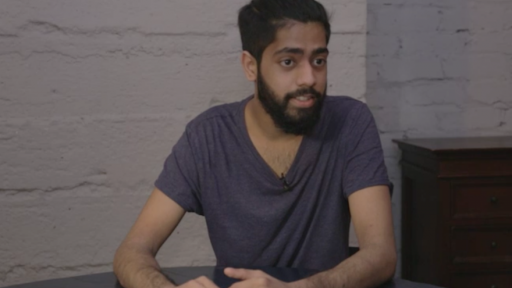The UK government implemented austerity measures in 2016 that adversely affected disabled people. The United Nations labelled the cuts to their benefits “grave and systematic” human rights violations.
Design Indaba Global Graduate Arjun Harrison-Mann felt the effects of this policy change close to home. His mother lost much of her own benefits, leaving the family struggling to make ends meet.
When people are angry at the decisions made by their government, they take to the streets in protest. But that isn’t always an option for disabled people. To give them a voice, Harrison-Mann, a Royal College of Art (RCA) MA graduate and the founder of collective Studio Hyte, designed a way to make protest action more accessible.
The #RightsNotGames platform is an online protest website designed in collaboration with Ben Redgrove and Disabled People Against Cuts. It allows 1000 protesters to live stream themselves from anywhere in the world. It then gathers the various streams in one place where the protest videos can either be heard in unison or individually, giving disabled people a voice.
The project is an example of Harrison-Mann’s approach to dialogical design, a framework that puts the audience on the same level of importance as the work and its subject matter.
In another project, @DearDecisionMkr, he shines a light on the lack of empathy in the disability benefits process by showing that Personal Independence Payments (PIPs) were being allocated using a faceless algorithm. This is especially potent because, in 2016, 65 per cent of people who were denied disability benefits in the UK were found to have been wrongfully denied.
“Systems can’t feel compassion only humans can,” he said in his Design Talk at the Design Indaba Conference 2017. “And even though there are people existing within these systems, unfortunately, most of the time their hands are tied.”
In his work, he hopes to use dialogical design as a more ethical way to engage the audience, the subject and the design piece. “I hope to one day create work that considers both the subject and the participant in equal measure.”









